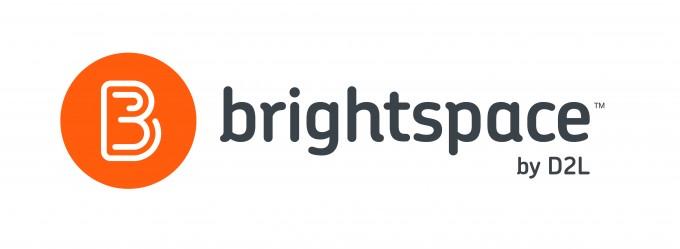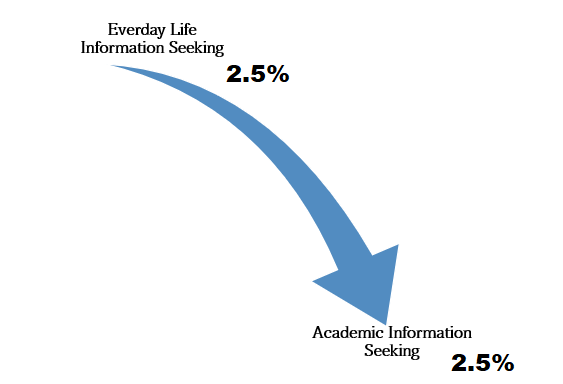How we talk is greatly influenced by our audience’s level of expertise on a topic. In my last few posts, I have reflected on authentic conversations in the classroom. Creating authentic conversations in library information instruction is extremely important in ensuring that students understand the role of the library in research, as well as creating confidence in students’ research abilities.
My focus lately, has been on the library’s role in first-year instruction. As I mentioned in a post called, From Enriched Support Program to a life of academics, I was the first person in my family to attend university. As a result, my familiarity with even basic university-level concepts was almost zero. While I struggled at the time, that challenge has given me the insight and inspiration to create more relevant information literacy sessions for first-year students.
Thinking outside of the traditional concepts of information literacy can be scary. My personal feeling is that most faculty want students to be expert searchers after a 1-hour library instructional session. So for me, designing first-year library instructional sessions are less about “use Boolean Operators in search!” and more about “how do you currently look for information?”
Students are experts in something
This past summer, I finally got around to creating an introductory module for First-Year Seminar classes. I say “finally” because I’ve been conceptually thinking about these modules for a few years. That’s right, a few YEARS. They were based on a course I took at San Jose State University called Information Communities. To this day, this course has been one of the fundamental pillars of my understanding of user Information needs.
The idea was to get students to think about a personal interest that they already look for information about. This shouldn’t be about academics. Are you a gamer? genealogist? foodie? fashionista? a sports enthusiast? Chances are, you are looking for information in your everyday life. This concept is called everyday life information-seeking behaviour.
I wanted students to pick something interesting for them. When students come into university, they aren’t experts in the academic subject matter. When it comes to research, how you search is determined by your level of expertise. One of my goals with the introductory module was to show students how expertise changes the way you approach research. Similarly, I want students to build confidence in their own search behaviours. For example, I am not an expert in cameras, so my approach to searches is different from that of a gamer (which I consider myself an “expert” in).
Look at the third video in the series which talks about expertise.
Exercise shown at 5 levels
If you want to see levels of expertise in more advanced concepts than photography or gaming, consider the series by Wired.com called 5 Levels. In this series, an expert engages in conversation with five different levels of people. Those people include a child, a teenager, an undergrad majoring in the same subject, a grad student and, finally, a colleague. I have linked to one of the videos in the series below where a Neuroscientist explains a concept at 5 different audience levels.
When our institution switched to Brightspace as our new course management software, I used the opportunity to gain a better understanding of the platform, as well as build these modules. Admittedly, I am new to course design, so my goal was to get something to a functional level and see what people thought of it.
The idea of getting a product to a functional level as opposed to the “perfect” iteration was discussed in a white paper by Brian Mathews, then Associate Dean for Learning & Outreach at Virginia Tech.
New ideas are exciting. You want to launch them as quickly as possible, but often you might feel “it’s just not ready yet.” That’s a surefire way to inhibit success.
Mathews, B. (2012). Think like a startup: A white paper to inspire library entrepreneurialism. (Link)

Get something to a functional level and put it out there
This white paper was something I stumbled on during my master’s degree and was instrumental in my philosophy of instructional development. With the everyday life information-seeking modules, I did just what Mathews suggested, get it to the “functional” level, then get it into users’ hands.
My vision was to have a graded two-part module. The first module gets students to understand the information landscape that they currently reside in (Everday Life Information Seeking). The second module connects the skills they already use in their everyday life, to those they can use in academic research, using strategies such as the C.R.A.P. Test.
Making these modules graded will give students greater motivation to complete the modules. My vision would be to make each worth 2.5%, making the overall module worth 5% of the grade.

Bridging students into university and beyond
The first-year student experience is something that interests me greatly and creating instructional sessions that bridge students into academics are extremely important. Similarly, preparing students for a life outside of academics is also becoming more and more recognized within post-secondary institutions. Initiatives such as the Future Skills Innovation Network (FUSION), attempt to bridge academic and employability skills in order to educate the next generation of citizen scholars. These types of programs will become more and more mainstream and should be an area of focus for library professionals.

